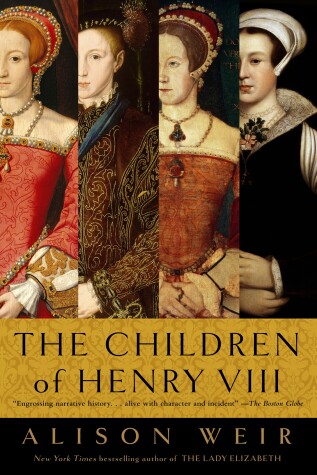Reviewed by gmcgregor on
These fears turned out to be both founded and unfounded. While he was absolutely correct to be worried about producing a son that would survive to adulthood, his failure to do so led directly to one of the most successful reigns in English history. In The Children of Henry VIII, Alison Weir focuses on the period between Henry's death and the beginning of Elizabeth's rule. This 11-year timespan saw three monarchs and a significant amount of instability, much of it driven by the religious schism between English Catholics longing to return to the old faith and Protestants wanting to protect their gains. With this book, Weir explores how Edward VI, Lady Jane Grey (Henry's grandneice), Mary I, and Elizabeth I interacted with each other, with the nobility, and with the levers of power.
In popular culture, there's a tendency to focus on Henry and then Elizabeth, with little if any thought to what happened in between. But there was a LOT of drama...Elizabeth's teenage sex scandal with her stepmother's husband, Edward's slow death from tuberculosis, complete with an artificial prolonging of his life to give courtiers more time to scheme to get another Protestant on the throne, Jane Grey's 19-day queenship, in which she was mostly a pawn to her parents and their co-conspirators, Mary's romantic obsession with her largely uninterested husband and her extended phantom pregnancy which everyone just apparently pretended never happened. Seriously! She went into confinement to have her baby and stayed there for months and then just disbanded it long after it should have been obvious that there wasn't going to be a baby.
As always, Weir has a keen sense of who her subjects are as people and gives them life rather than just dryly recounting the events of their life. We see Edward's haughty remove and strong religious conviction, Jane's helplessness as a pawn in a game she's not a player in, Mary's desperation to have a family of her own to love and fervent Catholic faith, and Elizabeth's intelligence and caution, constantly trying to balance on a wire. It's easy to see why Weir was inspired to write about Jane for her first stab at fiction, as her sympathy for the doomed teenager shines through brightly. She's clearly done her research and the book feels satisfying both as reading for information and reading for entertainment. I'd definitely recommend this book!
Reading updates
- Started reading
- 21 April, 2017: Finished reading
- 21 April, 2017: Reviewed
